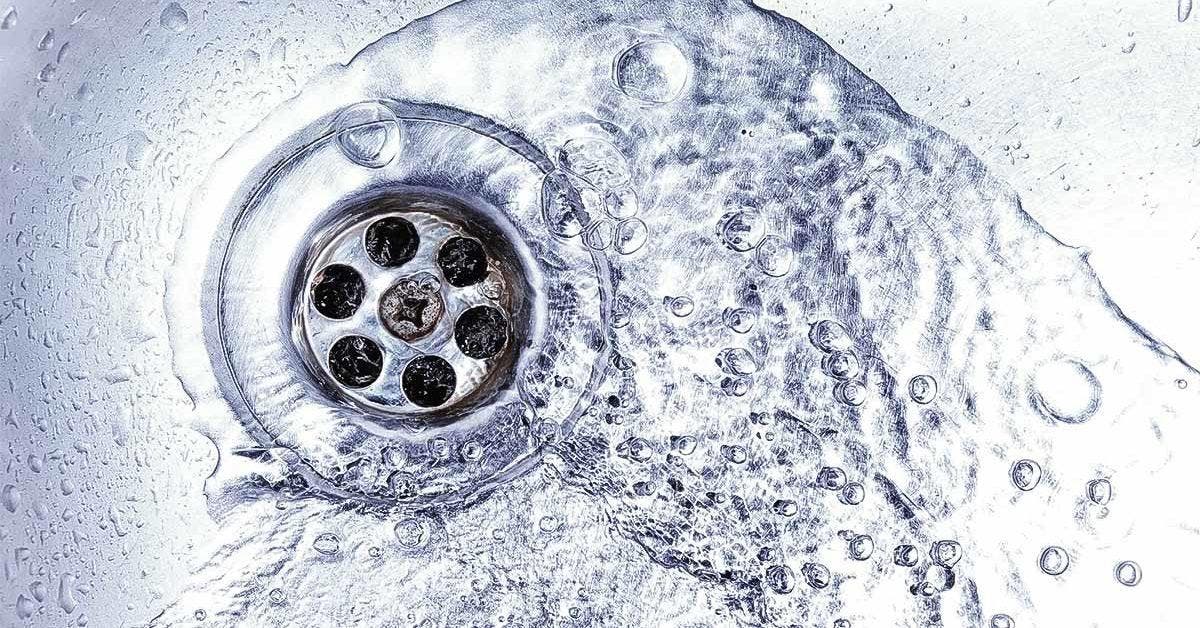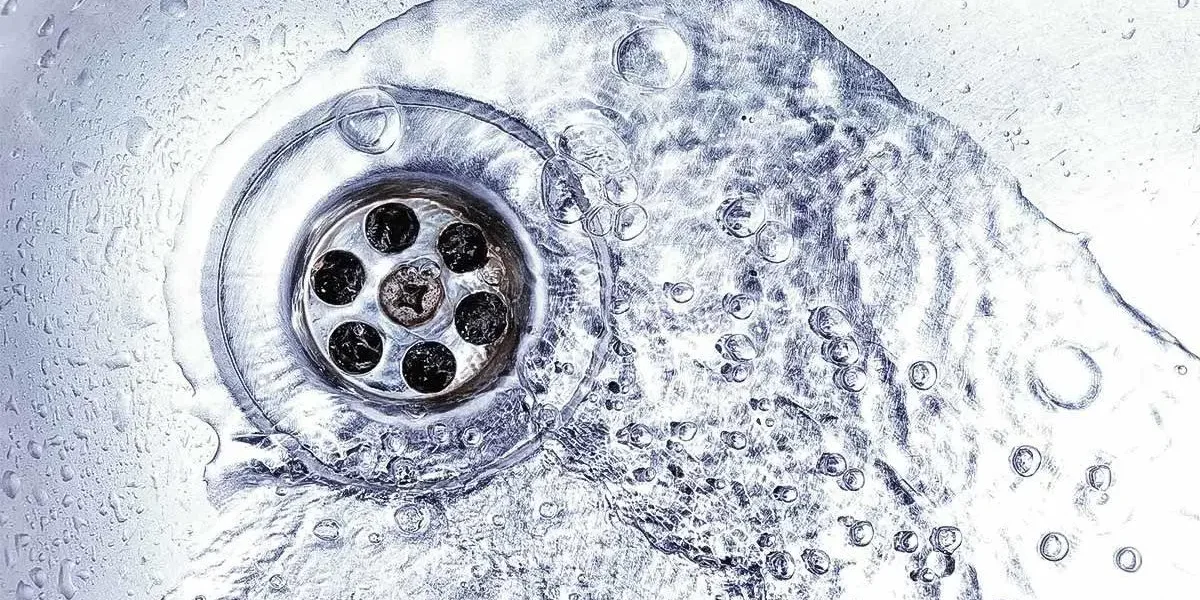
Do you have foul odors coming up in the bathroom or kitchen? The problem is definitely with the pipes. Before resorting to conventional products filled with chemical substances, we offer you some homemade tips to put an end to bad odors. Let’s go !
Why do my pipes smell bad?
Find the origin and main causes of a bad-smelling pipe below :
- A proliferation of bacteria
That foul smell coming from your pipes may simply be due to a buildup of dirt and bacteria. Remember, it’s not just water that ends up in your drains. There are also food remains, hair deposits or soap residue which cause blockages in your toilets and repress bad odors. It’s time to clean your pipes !
- A dried out drainage pipe
Drain pipes have a P-shaped section that serves to trap sewer gases and prevent them from rising to the surface through the pipe. If you don’t use your sink for a long time, the water in this section will evaporate and allow the gas to escape into your home. To prevent this from happening, it’s simple! Once a month, turn on your unused faucets to run the water, fill the P-traps and block the gases.
- A blocked or missing vent pipe
Please note that your exhaust pipes are connected to a pipe network dedicated to ventilation. The latter serves to bring in fresh air and evacuate gases as well as bad odors from waste water to the outside of the house. Typically, these vertical ducts exit through the roof and are installed away from windows and vents.
One of the reasons for having bad-smelling pipes can therefore be due to an obstruction in these exhaust chimneys. You may also not have one or be missing one. The intervention of a plumber is therefore essential.
- Grease stuck in sink drain
If there is grease stuck in your sink drain, you will likely smell a rotten egg or mold odor coming from it. This is why you should avoid pouring fatty liquids into your pipes. If this happens, put 2 teaspoons of baking soda down the drain hole, add vinegar, then a pot of boiling water. This tip will melt the fat which will be eliminated by the hot water.
- Missing drain siphon
A proper drain trap under your sinks or bathtub is necessary if you don’t want to have bad odors in your home. The latter serves as an obstacle to any fumes coming from your pipes. So ask a professional plumber to install one for you.
How to remove the smell from pipes?
If you are bothered by odors emanating from your pipes, you can remedy the problem using simple and effective methods.
Check P-trap or U-bend
As seen previously, the U-bend or P-trap under your kitchen sink traps sewer gases. Filled with water, they constitute a barrier against bad odors.
If after diagnosis you know that the stench comes from the siphon, here is what to do:
- Make sure there is always water inside the siphon . If you are away from home for a long time or do not use one of your faucets, the pipes can dry out and allow gases to pass through. Run a little water and the problem is solved!
- Also check that there are no leaks. If you notice water drops or wet spots under the sink, contact a professional to seal your pipes.
- It could also be a pipe blockage. If so, clean the drain to unclog it. Remove the U-shaped elbow and clean it using a wire brush.
White vinegar and baking soda
It is wise to maintain your pipes regularly to avoid pipe blockages and bad odors. A little maintenance routine helps keep your ducts clean and functional:
- Put approximately 100g of baking soda and 50g of salt in the drain hole;
- Then pour in a liter of household vinegar. A chemical reaction will occur and will disintegrate all the dirt;
- Leave on for 15 minutes on average;
- Then pour in hot boiled water;
- Run cold water for a final rinse.
The boiling water
To stop the emanations of foul odors, boiling water alone may be sufficient when the source of the problem is a simple accumulation of fat inside the pipe.
- Boil water in a saucepan or kettle;
- Pour the water into the drain carefully;
- Wait approximately 5 minutes;
- Turn on the cold water faucet to high flow to allow any fat that sticks in the pipe to break down.
White vinegar
White vinegar can also be used alone:
- Pour a liter of white vinegar down the drain;
- Leave it on for 30 minutes;
- Rinse with warm water.
Bleach
Bleach is a disinfectant that kills bacteria and can be used to clean your plumbing. Pour 150 ml of this product into your pipe to disinfect it. Leave it on for thirty minutes, then run hot water to eliminate any foul odors from your drains.
Use a specialized commercial cleaner
Based on powders or liquids, pipe cleaning products sold in supermarkets clean and unclog all plumbing systems. Use them wisely, as they contain chemical compounds and can damage your pipes over time.
How to prevent bad odors in your pipes?
To keep your plumbing clean and in good condition, the best thing to do is prevention! Therefore avoid the formation of blockages and bad odors coming from them. Find a comprehensive list of recommendations below:
- Sanitize bathroom and kitchen pipes weekly or monthly.
- Rinse dishes before putting them in the dishwasher to prevent food residue from accumulating in the machine filter and clogging it.
- Clean the dishwasher filter. The latter is connected to a pipe.
- Keep fats, egg shells and vegetable peelings away from your sink drain, as they can cause clogs and cause bad odors.
- Avoid throwing dental floss or sanitary napkins into the toilet bowl.
- Avoid leaving hair in the bathtub or sink. You can also use pipe protectors available in specialized stores.
- Pour 4L of boiling water down all the drains in your home, once a week.
- Check the siphons regularly.
- Use deodorizer to keep your pipes fresh.
When should you call a professional?
If even after several attempts to unblock your pipes and stop bad odors, you have no results, all you have to do is contact a professional experienced in unblocking pipes. Equipped with the required skills and equipment specially designed for this purpose, he will find the source of your problem and resolve it.
FAQs
Can using expired yogurt remove unwanted odors from a drain?
Yes, you can use yogurt to deodorize your drain. The bacteria present in the latter help eliminate dirt and unpleasant odors. Pour a little yogurt down the drain, and leave it to act for two days before rinsing.
Can I use a plunger to unclog my sink and remove its stinky smell?
Yes, simply place the plunger on the sink drain and vigorously pump up and down for about a minute until the clog is cleared. Finish with a boiling water rinse to get rid of the grease that is blocking the pipes. This technique works well for small accumulations of waste.
Does the rotten egg smell indicate the presence of dangerous gases coming from the pipe?
Sewer gas is hazardous to health because it contains methane. Combined with bacteria present in the pipes, it becomes dangerous if inhaled. One of the other components of sewer gas is sulfur dioxide, also called hydrogen sulfide, which is responsible for the rotten egg smell.
